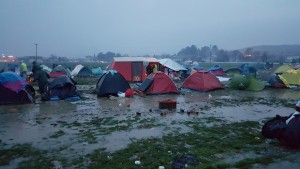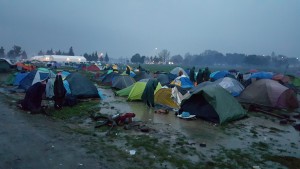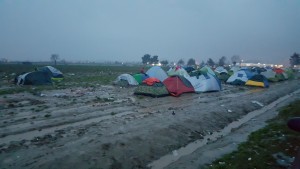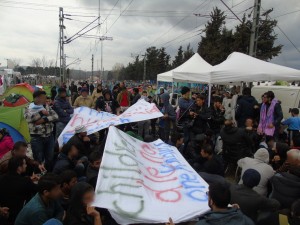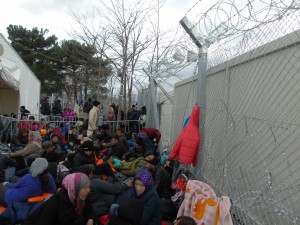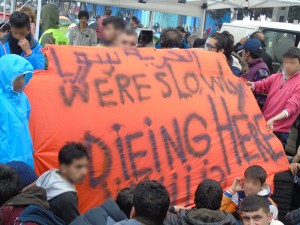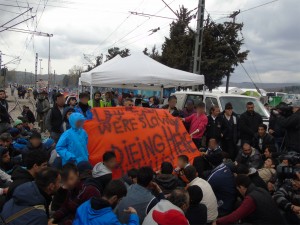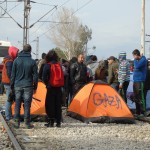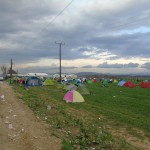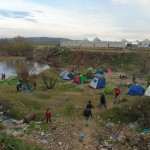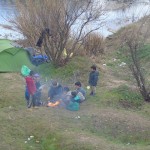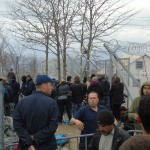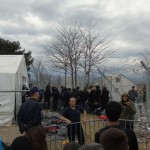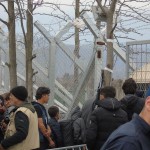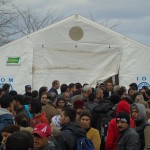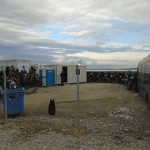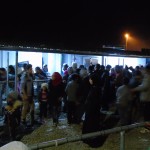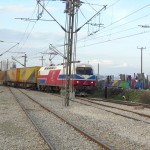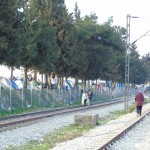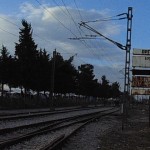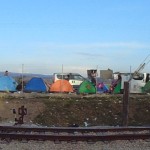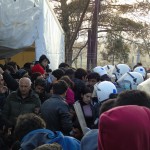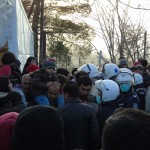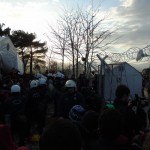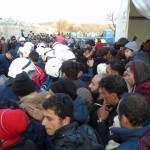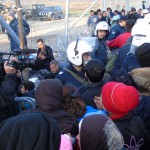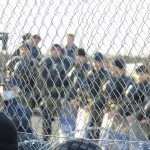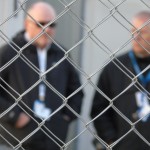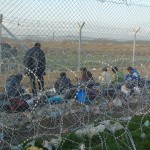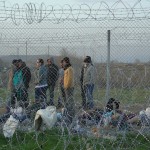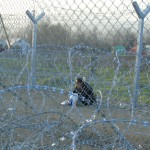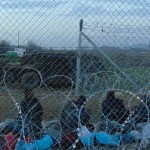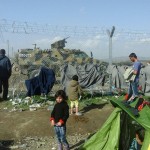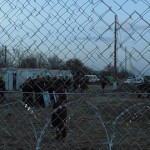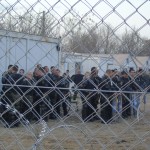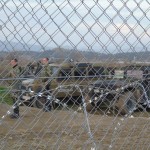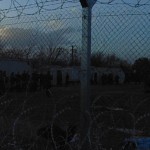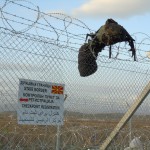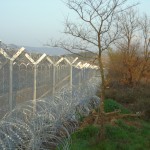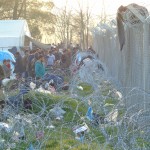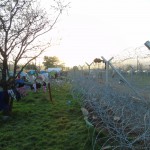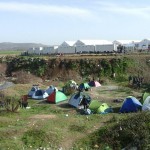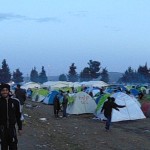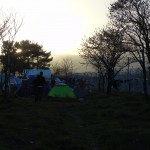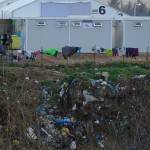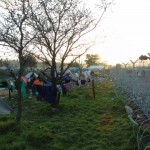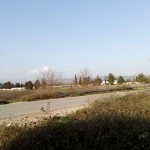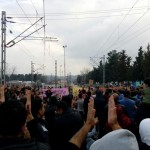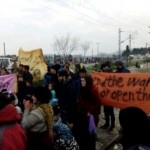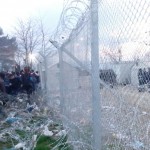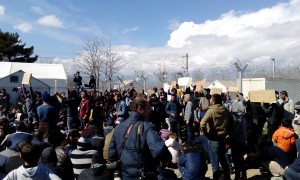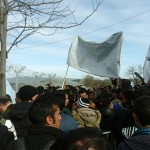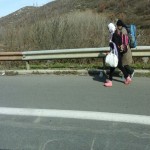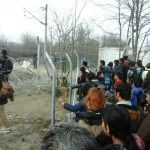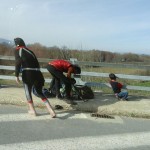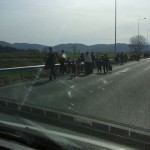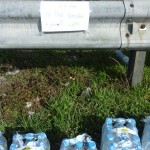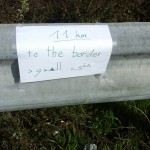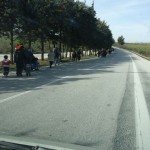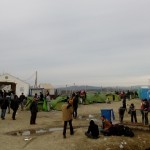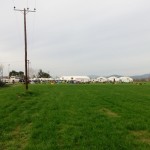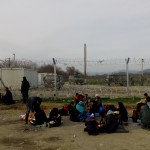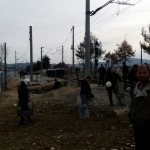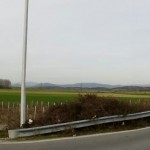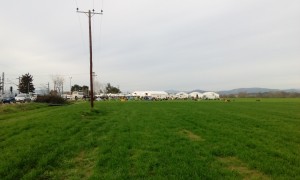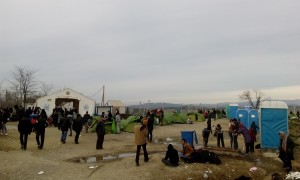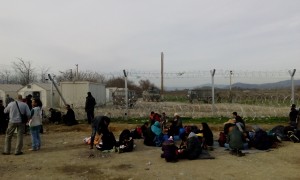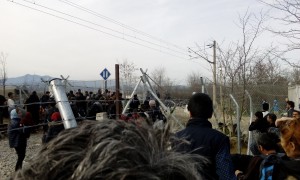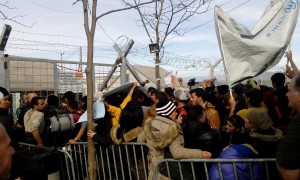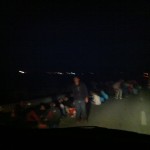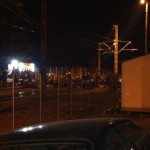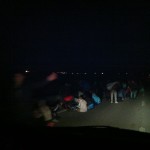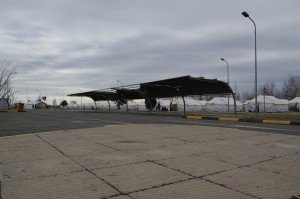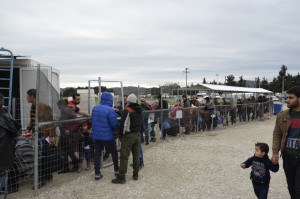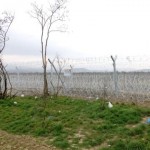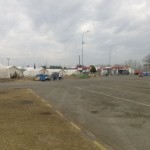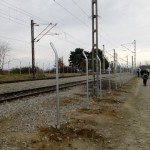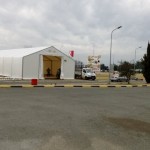The situation in northern Greece has changed in an almost unprecedented way. According to MSF, 12 000 refugees are currently stuck in Greece. They want to travel on and their immediate goal is to be as close to the border as possible. Today has shown, that the Greek government’s strategy to split up groups of refugees and lock them up in different camps along the way does not work. In northern Greece, thousands have started to walk towards the border: that is, Idomeni. The whole region seems to be on the move.
Hundreds stuck in the newly inaugurated former military camp in Diavata near Thessaloniki broke the fence today and started to walk towards Idomeni (70km). The camp in Diavata is completely closed off by police and military. No NGOs, no media and of course, no independent people were allowed to enter the camp. Also, no one was allowed to exit. However, the refugees could not be restrained by police, military and fences. They forged a way out and moved on, northbound.
In the meantime, those stuck at the Polykastro gas station decided to walk to Idomeni as well. Around 800 people were on the highway towards Idomeni this afternoon. There were further unconfirmed reports about other spots along the way, where people decided to walk.
Meanwhile, the camp in Idomeni is overcrowded. According to the UNHCR statistics of today, no one has been able to cross from Macedonia onwards. Macedonia, in accordance with the other Balkan route northern states and Austria, have declared mores thorough identity checks. This will mean further slowing of the registration processes and travelling speed of the refugees.
Whilst the camp in Idomeni remains overcrowded, protests and escalations can be expected there in the coming days. And as the recent developments have shown, thousands more can be expected to continue their journey onwards on foot along the highway towards Idomeni. The sight of hundreds walking along the highway are impressive and evoke the images of Keleti, Hungary in September 2015. They show the will of the refugees to reach the border and travel on. Once more, the different governments have made their plans without considering the agency and determination of the people on the move.
We have decided to change the format of our liveticker, in order to better accommodate the fast-pace changes happening simultaneously in many different locations in northern Greece. The several newly opened spots where people will be held back in the region around Thessaloniki as well as the highway from Athens now widen the geographical range from where people are setting off on foot, revolting and protesting. From now on, we will write one update per day in the evening, which will summarize the different events that occurred during the day between Thessalonki and the border in Idomeni. Short updates can be found during the day on our Twitter account: https://twitter.com/MovingEurope

